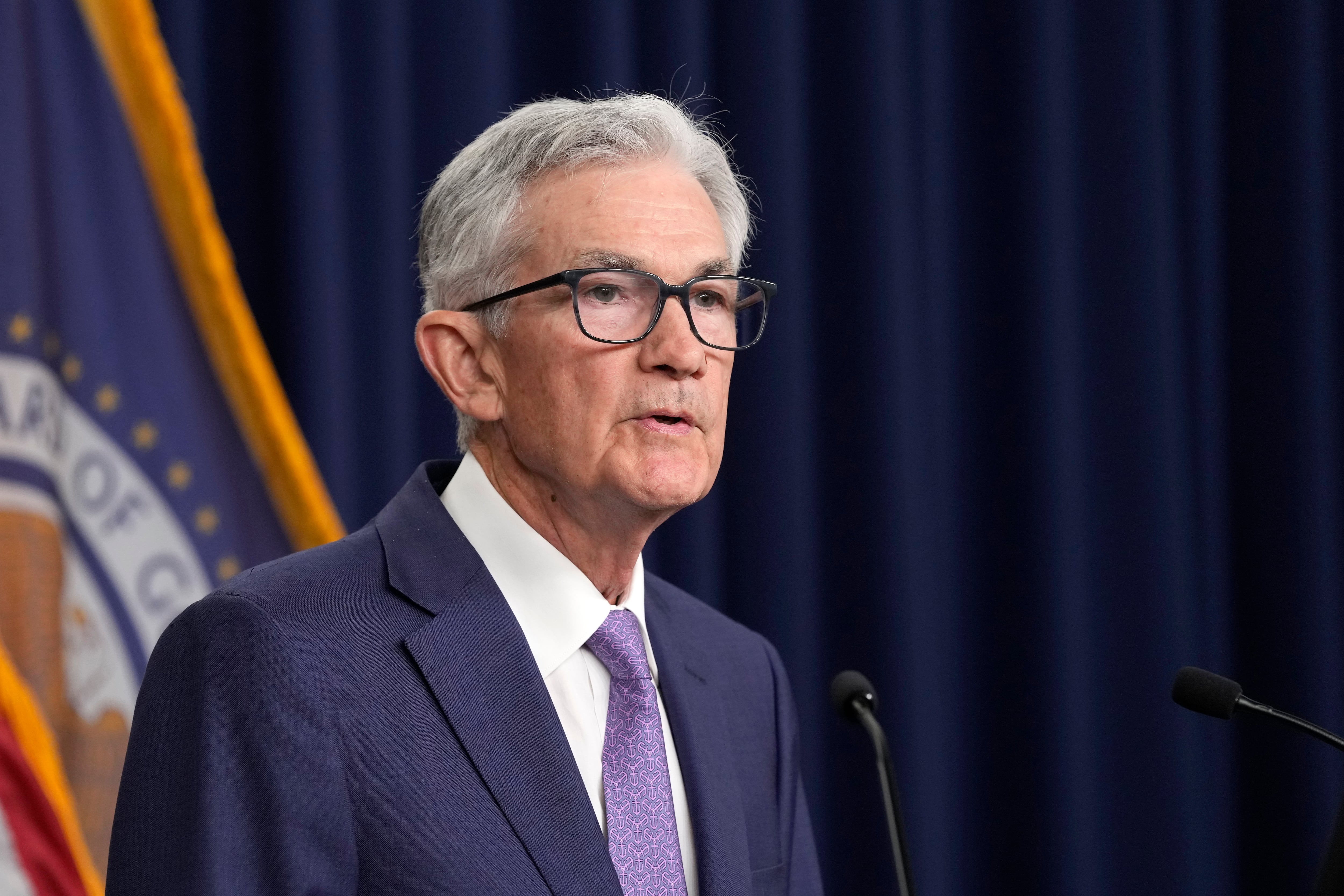WASHINGTON (AP) — The Federal Reserve faces a cooling job market as well as persistently high prices, Chair Jerome Powell said in written testimony Tuesday, a shift in emphasis away from the Fed’s single-minded fight against inflation of the past two years that suggests it is moving closer to cutting interest rates.
The Fed has made “considerable progress” toward its goal of defeating the worst inflation spike in four decades, Powell said in his testimony to the Senate Banking Committee.
"Inflation has eased notably” in the past two years, he added, though it still remains above the central bank’s 2% target.
Powell pointedly noted that “elevated inflation is not the only risk we face." Cutting rates “too late or too little could unduly weaken economic activity and employment,” he said.
The Fed chair is addressing the Senate panel on the first of two days of semi-annual testimony to Congress. On Wednesday, he will testify to the House Financial Services Committee.
From March 2022 to July 2023, the Fed raised its benchmark interest rate 11 times to a two-decade high of 5.3% to fight inflation, which peaked at 9.1% two years ago. Those hikes increased the cost of consumer borrowing by raising rates for mortgages, auto loans and credit cards, among other forms of borrowing. The goal was to slow borrowing and spending and cool the economy.
In the past, Powell and other Fed policymakers have repeatedly stressed that the economy's strength and low unemployment rate meant they could be patient about cutting rates and wait to ensure that inflation was truly in check.
But on Tuesday, Powell said the job market has “cooled while remaining strong." And he added that the economy's growth has moderated after a strong expansion in the second half of last year. Last week, the government reported that hiring remained solid in June, though the unemployment rate rose for a third straight month to 4.1%.
Powell's prepared testimony Tuesday did not provide what Wall Street investors are watching for most closely: Any clear indication of the timing for when the Fed might make its first rate cut. But the testimony will likely harden investors' and economists' expectations that the first reduction will come at the central bank's September meeting.
Last week, Powell said at a monetary policy conference in Portugal that there had been “quite a bit of progress on inflation,” something that Fed officials have said they need to see consistently before they would feel confident enough to cut rates. In May, year-over-year inflation fell to just 2.6%, according to the Fed’s preferred measure, not far above its 2% target and down sharply from a peak of 7.1% two years ago.
On Thursday, the government will issue the latest reading of the better-known consumer price index. The CPI is expected to show a yearly increase of just 3.1% in June, down from 3.3% in May.
Such signs of cooling inflation, along with evidence that the economy and job market are slowing, have intensified calls for the Fed to cut it benchmark rate. Several Democratic senators, including Elizabeth Warren from Massachusetts, a key member of the Senate Banking Committee, have written letters to Powell, urging him to start reducing rates.
Investors have put the likelihood of a Fed rate cut in September at about 76%, according to CME FedWatch, up from just 50-50 a month ago.
Powell’s comments last week and minutes from the Fed’s June meeting released last week have boosted that probability. The Fed chair noted that inflation resumed its slowdown after data for the first three months of this year had suggested that inflation might be picking up. And the minutes showed that most Fed officials believe the economy is cooling, which makes a rate cut more likely.













